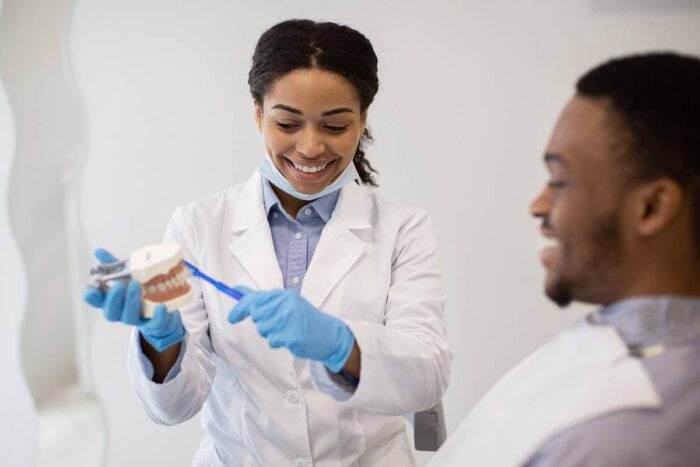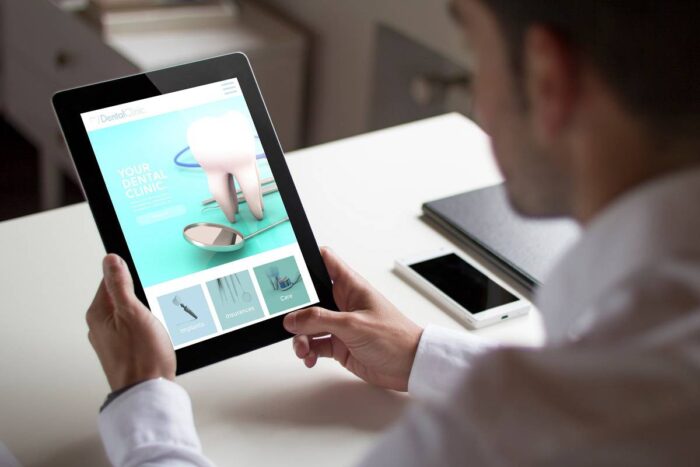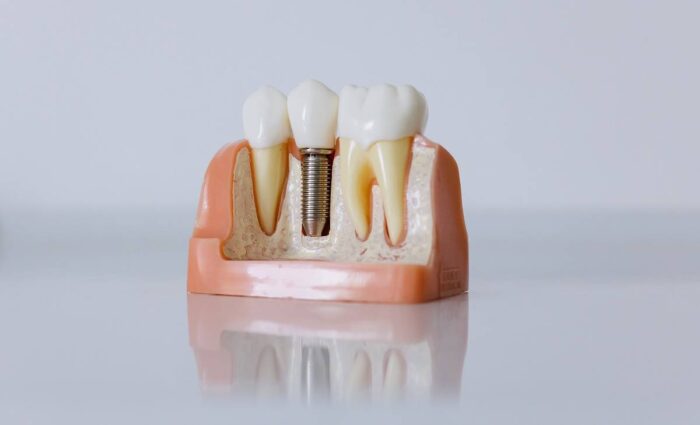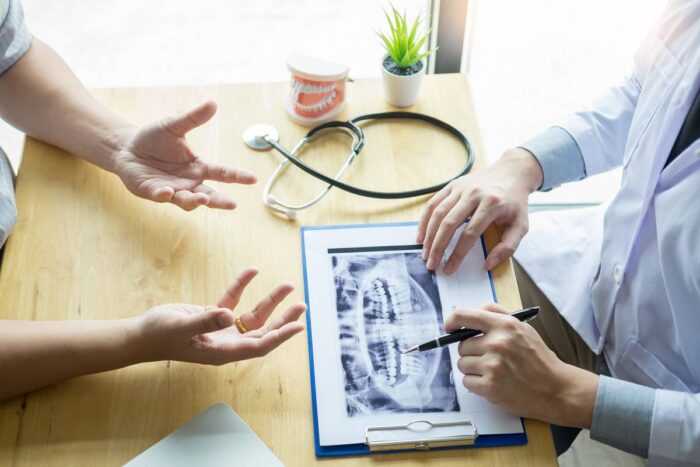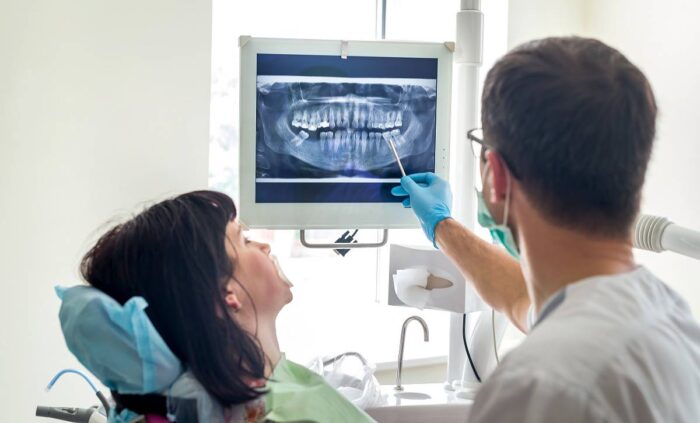Dental care is often not covered by insurance plans, leaving those with low incomes unable to afford the cost of dental services. About 1 in 4 adults in the United States have not visited the dentist in the past year due to cost. This leads to approximately 1 in 5 adults in the United States having untreated cavities (20%).
However, dental help for low-income individuals is available. Here's everything you need to know to access affordable dental care.
Available Dental Help For Low-Income Individuals
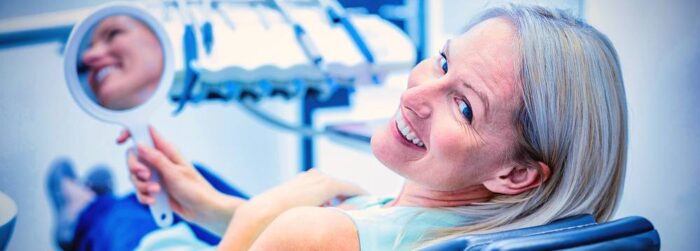
The following programs are designed to assist low-income individuals in need of dental care.
Cosmetic Dentistry Grant (CDG) Program
The Cosmetic Dentistry Grant (CDG) Program is a program that provides financial assistance for individuals seeking cosmetic dental procedures, such as teeth whitening, veneers, and orthodontic treatment. The program is typically administered by dental clinics or organizations and is available for low-income or uninsured people.
It's also available for those who have a disability or chronic condition that affects their oral health.
Donated Dental Services (DDS)
Donated Dental Services (DDS) is a program that provides free dental care to individuals who cannot afford it and are not eligible for other forms of assistance. The program is typically administered by state or local dental associations and is usually staffed by volunteer dentists and dental professionals who donate their time and services.
Eligible individuals include those who are disabled, elderly, medically fragile, and/or have a low income. The program may provide various dental services, such as cleanings, fillings, extractions, and even full mouth rehabilitation.
Dental Discount Plans
Dental discount plans are a type of dental insurance alternative. They are not insurance but membership programs that allow members to access discounted rates on dental procedures from participating dentists.
Dental discount plans typically involve paying an annual or monthly fee to the plan provider in exchange for discounts on various dental services. The discounts vary by plan and service, but they generally range between 10-60% off the regular cost of dental care.
Care Credit
CareCredit is a type of healthcare credit card that can be used to pay for dental procedures and other healthcare expenses. It is a financing form that allows individuals to cover their healthcare expenses over time rather than all at once.
With CareCredit, individuals can apply for a line of credit and, if approved, use it to pay for dental procedures and other healthcare expenses. The credit card may offer a low or no interest rate for a certain period of time, and the balance can be paid off over time with monthly payments.
Take note that CareCredit is a form of credit, so it requires a credit check and approval, and if not paid on time, it will accrue interest.
Give Back a Smile Program
The Give Back a Smile (GBAS) program is a charitable program that provides free dental care for survivors of domestic and/or sexual violence. The program is typically administered by the American Academy of Cosmetic Dentistry (AACD) and is staffed by volunteer cosmetic dentists and dental laboratories who donate their time and services.
The program aims to help survivors who have suffered dental injuries as a result of the abuse and lack the financial means to repair the damage.
United Way (Free Dental Clinics)
United Way is a nonprofit organization that focuses on improving communities by addressing local issues such as education, income, and health. The organization works with a network of local partners, including businesses, governments, and other nonprofits, to achieve its goals.
United Way may partner with local free dental clinics to provide dental care to underserved communities. These clinics offer various services, such as cleanings, fillings, extractions, and even full-mouth rehabilitation, and are staffed by volunteer dentists and dental professionals.
Medicare, Medicaid & CHIP
Medicare, Medicaid, and CHIP (Children's Health Insurance Program) are government-funded programs providing health coverage to specific people.
Medicare is a federal program that provides health coverage for people 65 or older. At the same time, Medicaid is a joint federal and state program that provides health coverage for low-income people. CHIP is a federal and state partnership program that provides health coverage for children in families with low incomes.
The program's coverage and benefits vary by state, but most states cover some form of dental care for adults and children. It's best to check with the state's Medicaid or CHIP program for more information about dental coverage.
Public Dental Clinics
Public dental clinics may offer cleanings, fillings, extractions, and even full-mouth rehabilitation. They may also offer specialized services such as orthodontic treatment, dental implants, and cosmetic dentistry, depending on the clinic and the funding available.
They are operated and funded by government organizations, such as state or local health departments, and are typically designed to provide dental care to individuals who are uninsured or have low incomes.
Clinical Trials
Clinical trials are research studies that test new treatments, drugs, or medical devices in a controlled environment. These studies are conducted to determine the safety and effectiveness of new treatments before they are made widely available to the public.
Dental clinical trials may focus on a specific dental condition or treatment, such as periodontal disease, tooth decay, or dental implants. However, it's important to note that clinical trials come with certain risks, and the treatments being tested may not be as effective as existing treatments or may have unknown side effects.
Discount Treatment At Dental Schools
Many dental schools have clinics that provide dental care at a reduced cost. These clinics are staffed by dental students supervised by licensed dentists.
Dental students provide a wide range of services, including cleanings, fillings, extractions, and even full-mouth rehabilitation. The prices for services are usually lower than at private dental practices, and they may offer sliding fee scales based on a patient's income.
Discount Treatment At Dental Hygiene Schools
Discounted dental treatment at dental hygiene schools is similar to that at dental schools. Dental hygiene students can provide teeth cleaning, scaling and root planing, fluoride treatments, and oral cancer screenings. These services are usually lower than private dental practices.
Frequently Asked Questions:
Dental assistance options for low-income individuals include Medicaid, community health clinics or dental schools, and charitable organizations or dental societies that provide free or low-cost dental care. Availability and coverage vary by location and individual circumstances.
Eligibility for Medicaid dental assistance varies by state, as each state sets its own guidelines. Generally, low-income individuals, pregnant women, children, and people with disabilities may qualify. Visit your state's Medicaid website or contact your local Medicaid office for more information on eligibility and dental coverage.
To find affordable dental care options, conduct an online search for community health clinics or dental schools in your area. You can also contact your state or local dental association for information on charitable dental programs or low-cost clinics. Additionally, websites like the National Association of Free & Charitable Clinics (NAFC) or the American Dental Association's "Find a Dentist" tool can help you locate low-cost dental care providers near you.
Get Dental Help Today!
Don't let high dental costs stop you from getting dental treatment. Check out the list of dental help for low-income individuals available above and take charge of your oral health.
Check out our post on how to apply for pro bono dental care to jumpstart your application to one of the above options.


